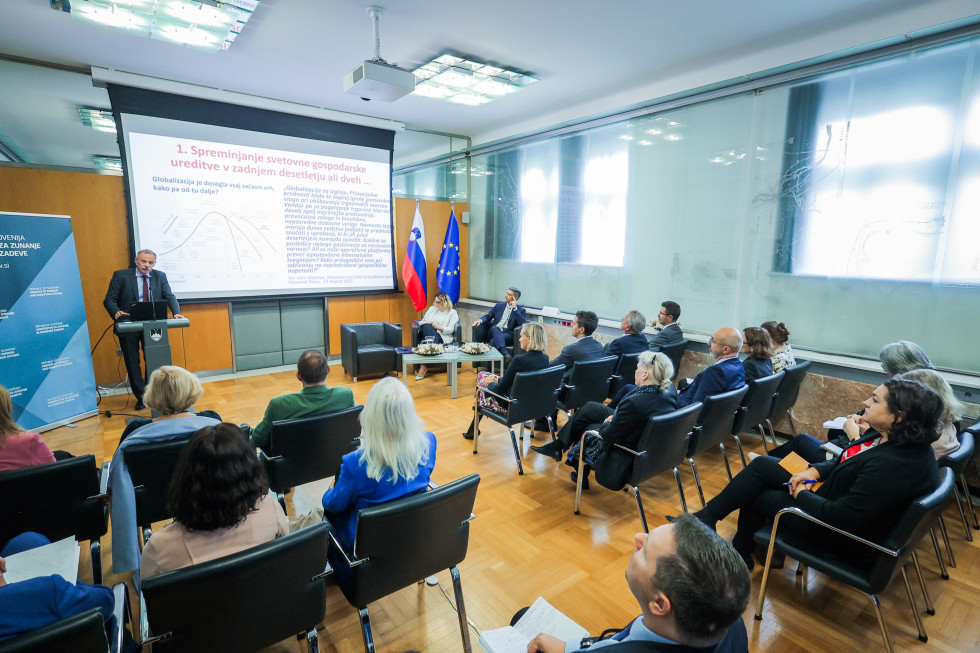The Diplomatic Academy opened the new academic year with a guest lecture by Prof. Mojmir Mrak

Guest lecture by Prof. Mojmir Mrak at the opening of the Diplomatic Academy’s new academic year Prof. Mojmir Mrak | Author MZEZ
In his introductory remarks, Dr Zidar underscored the special significance of the lecture as the Diplomatic Academy celebrates its fifth anniversary. Over the five years, the Academy has consolidated its founding values of pragmatism, practicality, interactivity and excellence, underpinned by the principles of adult learning.
State Secretary Grašič emphasised that Slovenia, as a small and open economy, is particularly sensitive to global economic trends, to which we can only respond through a coordinated and proactive approach at all levels: at the UN level, within the EU and in bilateral relations. She went on to highlight four key areas of Slovenian economic diplomacy that the country is striving to strengthen: enhanced economic and science diplomacy for a more coherent single market and improved external competitiveness; seeking sustainable energy sources within the green and digital transitions; increased economic security at the national level; and connecting foreign and economic policy through development cooperation. "We can only find solutions to the current global issues through dialogue, and we must recognise that challenges also present new opportunities," added State Secretary Grašič.
In his guest lecture entitled 'Slovenia as an EU Member State in the changed geopolitical environment', Prof. Mrak outlined the current state of international relations, in which economic issues have yet again become the focus of international efforts. In his view, a fundamental redistribution of global power is underway, resulting in a multipolar world with three major groups of countries: the West (the US, the EU and Canada), the East (China, Russia and Iran) and the South (primarily the BRICS countries). Prof. Mrak believes that growing geopolitical risks will determine the nature of relations between these three groups, including in economic terms.
"This also includes the transition from an international rules-based system to an international system based on power," explained Prof. Mrak. One factor contributing to this dynamic is the economic policy of US President Trump, who introduced tariffs to protect the national industry, reduce the trade deficit and generate new budget revenues. What does this mean for Slovenia as an EU member? "As a relatively open economy focusing on foreign trade, the EU will have to adapt its relations with the relatively closed economies of the major powers. If the EU wishes to remain a relevant international player, it will have to swiftly address the need for institutional changes to respond more effectively to these fundamental global shifts," said Prof. Mrak. He added that the EU will have to increase funding, particularly in the areas of security, the environment and migration, despite the declining international competitiveness of EU economies. Slovenia, whose prosperity hinges on a well-functioning EU, must prepare for various possible scenarios of EU development and, at the same time, use its voice to strengthen the EU.

